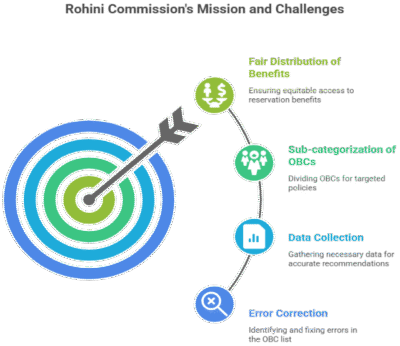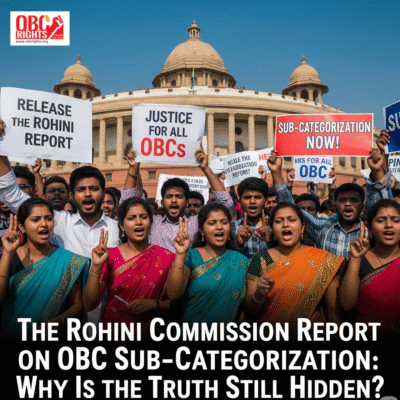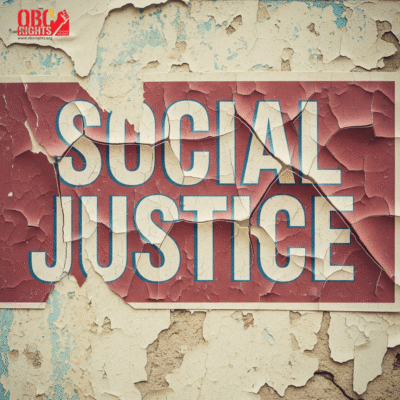We often speak of the need for reservation for Other Backward Classes (OBCs), but very little attention is paid to how that reservation is actually distributed. Are all OBC communities getting their fair share of benefits? Or are a few dominant groups taking away most of it? These were the questions the Rohini Commission was set up to answer.
Why Was the Commission Set Up?
In 2017, the Government of India appointed the Justice G. Rohini Commission to fix a long-ignored problem—imbalances within the backward classes were the reason for the Constitution of the Rohini Commission under Article 340, which empowers the President to appoint a commission to examine the conditions of backward classes.
From it’s very beginning on October 2, 2017, the Commission had one clear mission: to look into how reservation benefits were being shared among the vast and diverse communities listed under the OBC category, which are the bunch/categories that did not receive the benefits guaranteed by the constituion.
And the findings? We don’t know yet. Because even though the Commission submitted its report to the Ministry of Social Justice and Empowerment on July 31, 2023, the government has still not made the report public.
This silence raises an uncomfortable question: what is stopping the government from sharing it with the people?

The Core Questions the Commission Was Asked to Answer:
The government assigned the Commission four major tasks:
- Check who’s getting the benefits: Are reservation benefits being cornered by a few communities while others are left behind?
- Propose a fair method: Suggest a scientific and just way to divide the OBC list into sub-categories so that benefits reach the most disadvantaged.
- Classify the castes: Identify and assign different castes to appropriate sub-categories.
- Fix errors in the OBC list: Spot and correct repetitions, spelling mistakes, and inconsistencies in the official list of OBCs.
The Missing Piece: Data
Here’s the catch: For six years, the Commission kept asking the central government for updated data on the OBC population and their socio-economic status.
The response? Complete inaction.
Despite not getting the necessary data, the Commission still completed its work. But how reliable can recommendations be without actual numbers?
Why This Matters:
Let’s be honest. “Reservation” promotes justice by giving voice and opportunity to those who have been historically silenced. But if within the OBC category, some groups are getting everything while others get nothing, are we really solving the problem of inequality? Or just shifting it?
The sub-categorization of OBCs could be a game-changer. It could mean better targeting of policies, fairer distribution of benefits, and real upliftment for the most marginalized among the marginalized.
Without data, openness, and the will to act, this report may end up gathering dust like so many others.
Final Thoughts:
If we are serious about justice, the time for silence is over.
What good is a commission if its truth is buried?
What good is a reservation policy if only a few benefit from it?
Is this the social justice we promised?
The Rohini Commission has done its part. Now, it’s our turn to ask—will the truth finally see the light of day?



